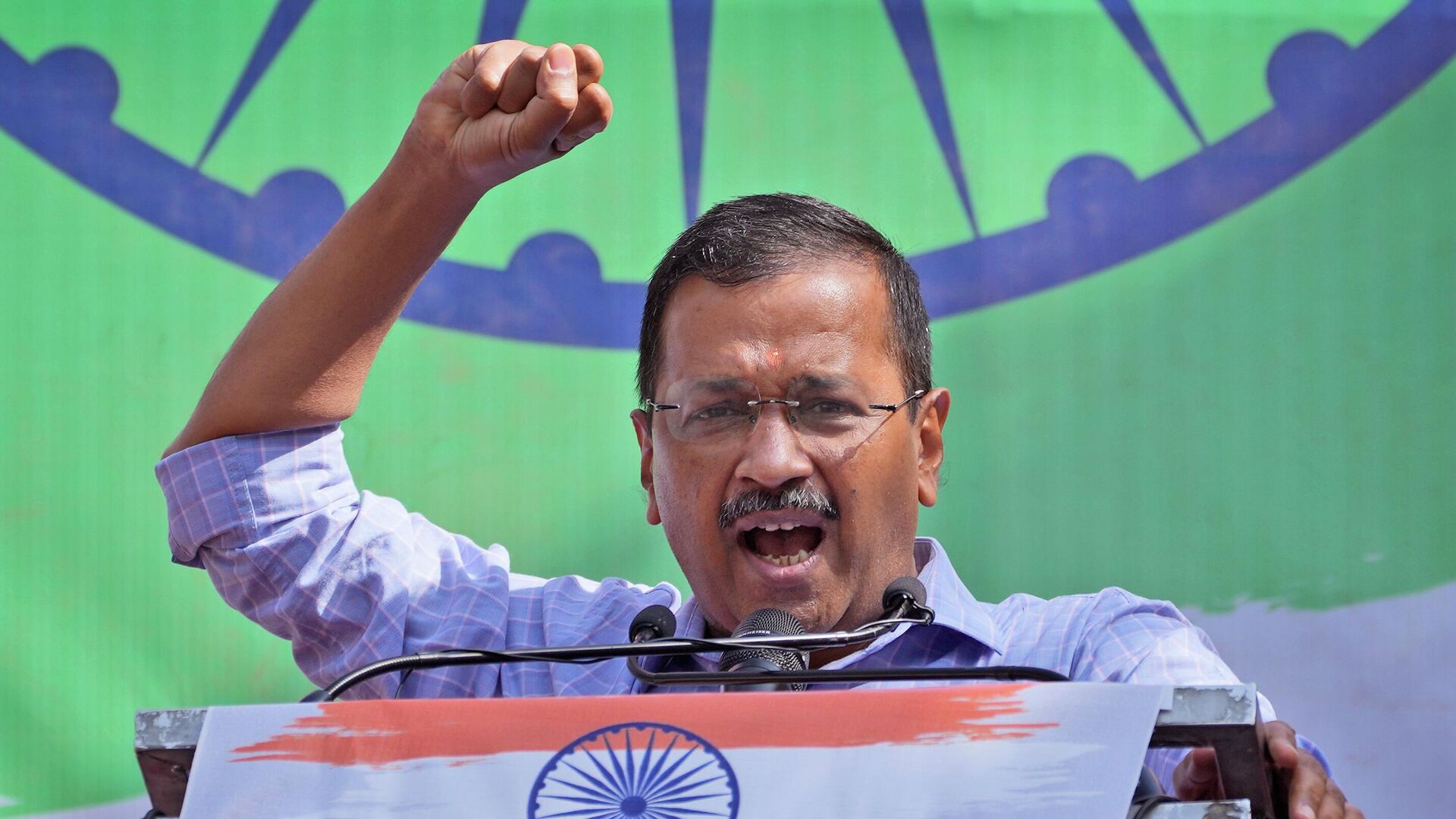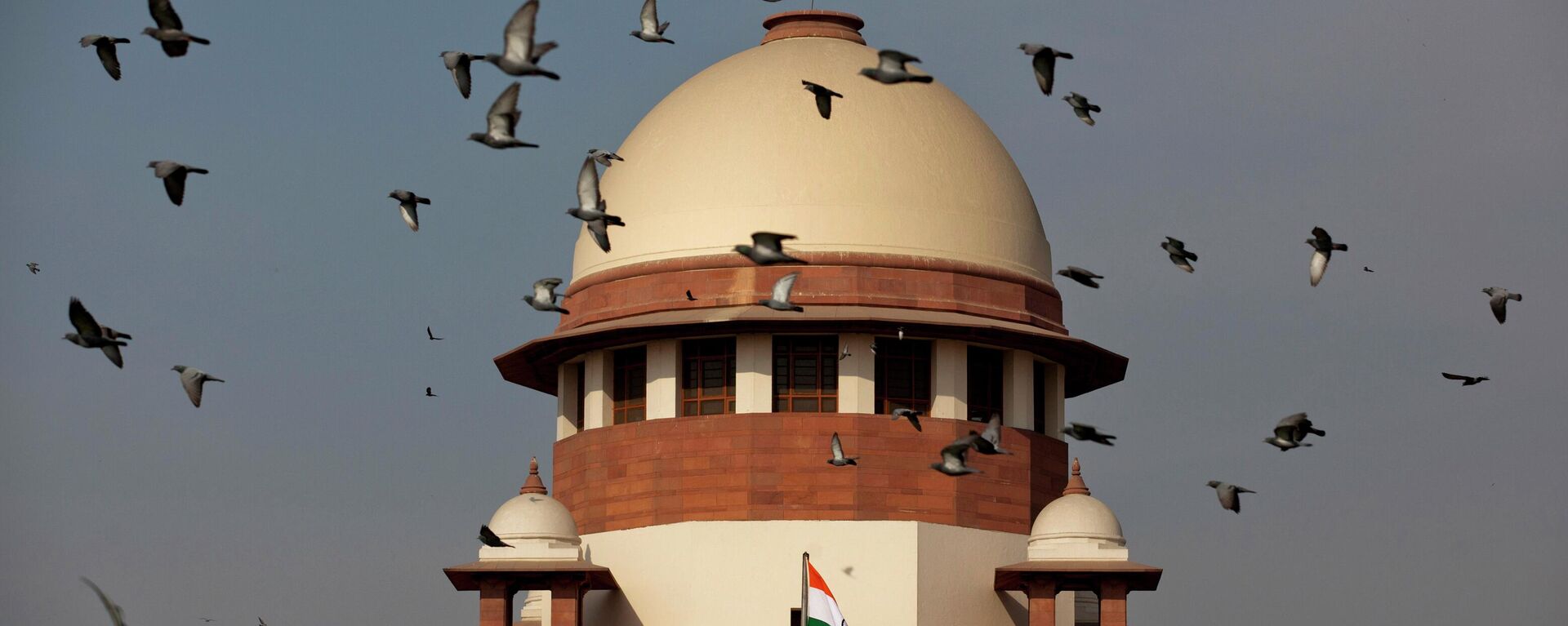https://sputniknews.in/20230520/delhi-federal-governments-dispute-over-who-controls-officials-back-in-the-supreme-court--2069228.html
Delhi, Federal Governments' Dispute Over Who Controls Officials Back In The Supreme Court
Delhi, Federal Governments' Dispute Over Who Controls Officials Back In The Supreme Court
Sputnik India
The central government on Saturday filed a review petition in the Supreme Court of its verdict over control of bureaucrats in the national capital, Delhi.
2023-05-20T15:03+0530
2023-05-20T15:03+0530
2023-05-20T20:30+0530
aam aadmi party (aap)
arvind kejriwal
supreme court of india
delhi
new delhi
bharatiya janata party (bjp)
https://cdn1.img.sputniknews.in/img/07e6/0c/12/134765_0:39:2855:1645_1920x0_80_0_0_ac11181b6fa7a3c3a62de8e9394f3717.jpg
The central government on Saturday filed a review petition in the Supreme Court of its verdict over control of officials in the national capital, Delhi.The move came after the center on Friday passed a special law making Delhi's Lieutenant Governor the final arbiter in the matter.The ordinance overrules the 11 May Supreme Court order handing the control of services over to Delhi, excluding police, public order and land to the elected government.The Delhi government has already approached the Supreme Court, alleging that the center is not following the court's ruling in the matter.For many years, the Delhi and the federal governments have been at loggerheads over which of them controls which department and the officials therein employed.On Saturday, senior politicians from the Aam Aadmi Party called the center's ordinance "unconstitutional" and a move to snatch the power given to the Delhi government by the Supreme Court in services matters.The BJP has alleged that the Arvind Kejriwal-led Delhi government was "intimidating" officers and "misusing" its powers under cover of the recent Supreme Court verdict on services matters.According to India's law, an ordinance must be passed in both houses of parliament within six months to turn it into law. The federally ruling BJP has enough numbers to clear ordinances in the lower house of parliament but lacks numbers in the upper house or Rajya Sabha.An ordinance older than six months is declared null and void.The opposition is expected to get together in the Rajya Sabha to protest against the ordinance.
https://sputniknews.in/20230512/delhi-govt-appeals-to-supreme-court-as-federal-lawmakers-defy-ruling-over-control-1929047.html
delhi
new delhi
Sputnik India
feedback.hindi@sputniknews.com
+74956456601
MIA „Rossiya Segodnya“
2023
Deexa Khanduri
https://cdn1.img.sputniknews.in/img/07e6/0c/13/138923_52:0:533:481_100x100_80_0_0_cadf23d341691fc65ff2b22fd1afe584.jpg
Deexa Khanduri
https://cdn1.img.sputniknews.in/img/07e6/0c/13/138923_52:0:533:481_100x100_80_0_0_cadf23d341691fc65ff2b22fd1afe584.jpg
News
en_IN
Sputnik India
feedback.hindi@sputniknews.com
+74956456601
MIA „Rossiya Segodnya“
Sputnik India
feedback.hindi@sputniknews.com
+74956456601
MIA „Rossiya Segodnya“
Deexa Khanduri
https://cdn1.img.sputniknews.in/img/07e6/0c/13/138923_52:0:533:481_100x100_80_0_0_cadf23d341691fc65ff2b22fd1afe584.jpg
the delhi government, control, transfer and posting in delhi government, vk saxena, who control delhi, aap vs bjp,
the delhi government, control, transfer and posting in delhi government, vk saxena, who control delhi, aap vs bjp,
Delhi, Federal Governments' Dispute Over Who Controls Officials Back In The Supreme Court
15:03 20.05.2023 (Updated: 20:30 20.05.2023) Deexa Khanduri
Sputnik correspondent
Last week, the Supreme Court ruled that the Delhi government has legislative and executive powers over the administration of services, except for public order, police and land.
The central government on Saturday filed a review petition in the Supreme Court of its verdict over control of officials in the national capital, Delhi.
The move came after the center on Friday passed a special law making Delhi's Lieutenant Governor the final arbiter in the matter.
The ordinance overrules the 11 May Supreme Court order handing the control of services over to Delhi, excluding police, public order and land to the elected government.
The Delhi government has already approached the Supreme Court, alleging that the center is not following the court's ruling in the matter.
For many years, the Delhi and the federal governments have been at loggerheads over which of them controls which department and the officials therein employed.
On Saturday, senior politicians from the Aam Aadmi Party called the center's ordinance "unconstitutional" and a move to snatch the power given to the Delhi government by the Supreme Court in services matters.
The BJP has alleged that the Arvind Kejriwal-led Delhi government was "intimidating" officers and "misusing" its powers under cover of the recent Supreme Court verdict on services matters.
According to India's law, an ordinance must be passed in both houses of parliament within six months to turn it into law. The federally ruling BJP has enough numbers to clear ordinances in the lower house of parliament but lacks numbers in the upper house or Rajya Sabha.
An ordinance older than six months is declared null and void.
The opposition is expected to get together in the Rajya Sabha to protest against the ordinance.



